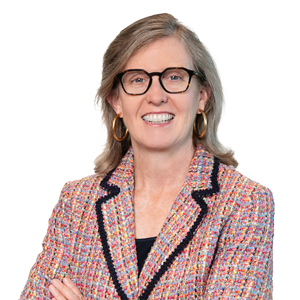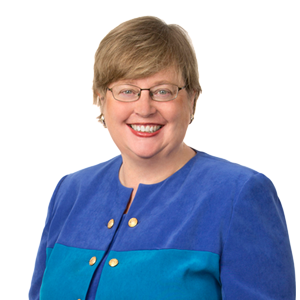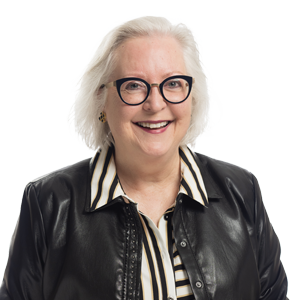Like most law firms, Womble Bond Dickinson announces leadership appointment every January 1. This year’s leadership announcements included the appointment of three new Office Managing Partners—Beth Tyner Jones in Raleigh, Elizabeth Lee in Washington, D.C. and Kim Kelly Mann in Winston-Salem.
These promotions are particularly important, given that women are historically underrepresented in law firm leadership roles throughout the profession. According to a 2017 report on gender equity in the law by McKinsey & Co., women make up just 25 percent of law firm executives. Jones, Lee, and Mann join Sarah Keefe, the Managing Partner of Womble Bond Dickinson’s Boston office. In addition, the firm’s top two leaders on the US side—Chair Betty Temple and Vice-Chair Ellen Gregg—both are women.
Jones, Lee, and Mann all have a number of traits in common. All three have been with Womble Bond Dickinson (or its predecessor firms) for decades. Along the way, they earned the trust of their colleagues and clients, making them natural choices to lead their respective offices.
For Jones, her association with Womble Bond Dickinson began in law school at Campbell University. She worked as a summer associate after her 2L year in the Raleigh office she now leads. After graduation, Jones then spent six years as a lawyer with the firm before leaving to practice in-house at a large pharmaceutical company. She also spent two years teaching at Mars Hill College.
“My experiences outside of the law firm environment were rewarding, and I think they’ve helped make me a better lawyer. But at the end of the day, I’m glad I came back to Womble Bond Dickinson and the Raleigh office—this has been a supportive place to grow as a professional and partner with great clients.” Jones said.
She returned to Womble Bond Dickinson in 2000, building her labor and employment practice with a strong emphasis in the education sector, serving educational institutions as outside general counsel and trusted advisor on the challenging issues facing them.
Lee joined David, Hagner, Kuney & Davison, P.C. in 1989, four years into her career. In 1998, that firm merged with Womble Bond Dickinson (then Womble Carlyle) to become the firm’s Washington, D.C. office.
“I was part of the team that opened the D.C. office and have essentially grown up here. I think it helps to have some continuity at this exciting time of change and growth for our office and the firm.”
In addition to leading the D.C. office, Lee also currently serves as Chair of the American Bar Association’s Section of Real Property, Trust and Estate Law. Her practice centers on guiding life insurance companies and other financial institutions through complex secured lending and other real estate investment transactions.
Mann joined the firm in 1987 after completing a two-year clerkship at the North Carolina Court of Appeals following graduation from Campbell University in 1985. Her career has been built on forming successful, trusted relationships with some of the firm’s oldest and largest clients in the Financial Institutions sector. The firm’s relationship with some of these banks dates back more than 100 years, and the leaders of these institutions rely on Mann to advise them on their most important financing transactions.
Jones, Lee, and Mann share another trait—all three are committed to community service.
Jones serves on the boards of directors of several community organizations, including the Greater Raleigh Chamber of Commerce, Baptist Retirement Homes of North Carolina (which she chaired last year), the Baptist Retirement Homes Foundation (which she was a founding member), in addition to her church.
Lee’s community service includes using her skills as a real estate lawyer to shepherd Grace Episcopal Church’s award-winning restoration project. She also serves as Senior Warden of the historic D.C. church.
Mann helps lead the Backpack Program at Winston-Salem’s Ward Elementary. Through the program, more than 150 students facing food insecurity at home receive a backpack of food every weekend, and financial assistance when they can’t afford to pay for breakfast and lunch at the school.
“We see ourselves not just as attorneys, but as citizens of the communities where we live and work,” Mann said. “We take our community and pro bono service as seriously as we do our service to clients.”





